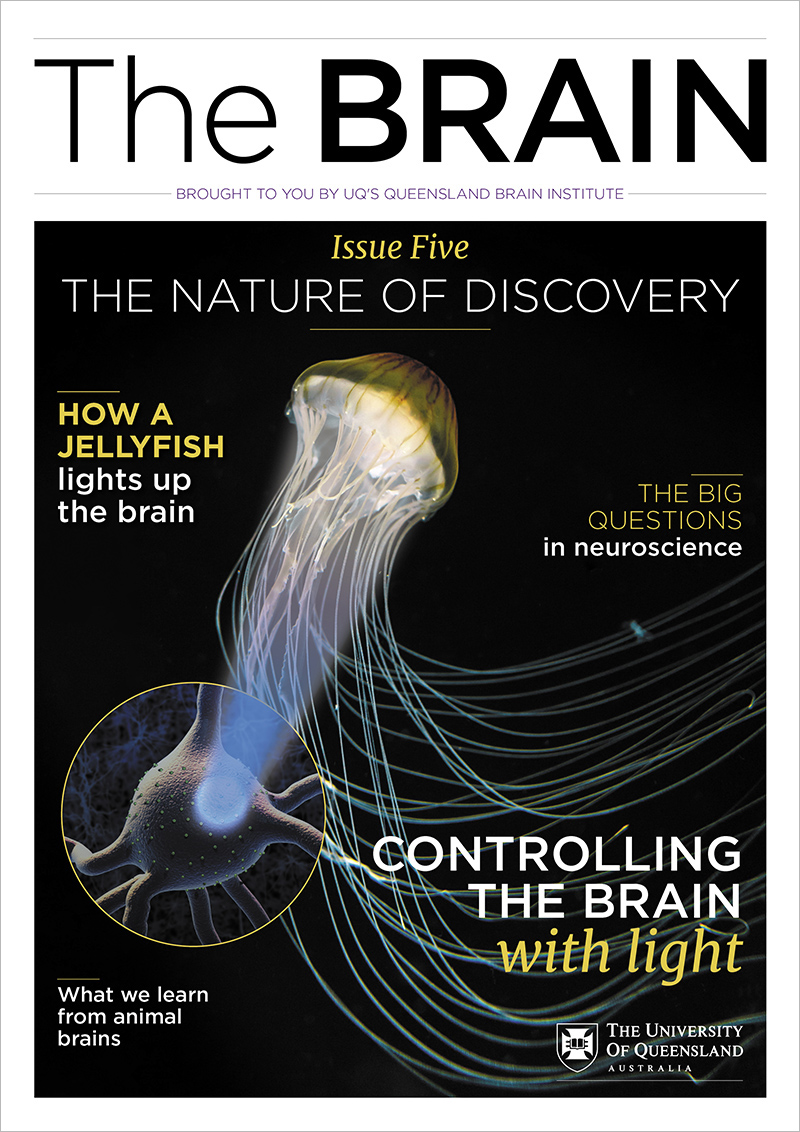The extinction of conditioned fear is an important model for the treatment of anxiety disorders. Like other forms of learning, long-lasting memory for fear extinction depends on coordinated gene expression and the synthesis of new synaptic proteins. This process involves a tightly controlled interplay between transcriptional machinery and enzymes that regulate chromatin structure, a relatively recent field of research referred to as epigenetics. At QBI, our researchers are working to understand how the genome is connected to the environment through epigenetic modifications, and how this relationship shapes behaviour throughout life, in the quest to improve lives impacted by mental health conditions.
Research highlight
Deep brain stimulation has been found to help people with severe obsessive compulsive disorder (OCD) that has not responded to other treatment.
Queensland Brain Institute researchers, Professor Pankaj Sah and Dr Philip Mosley led the study with brain implantations performed by Associate Professor Terry Coyne and Professor Peter Silburn. Find out about the Australian-first clinical trials.
Hear from our researchers
Professor John McGrath, Group Leader
 “I am a psychiatrist, and I know from my clinical practice that we need better treatments, especially for serious mental disorders like schizophrenia. In order to understand the causes of mental disorders, we need to understand how to build a brain, and how ‘a brain breaks’.”
“I am a psychiatrist, and I know from my clinical practice that we need better treatments, especially for serious mental disorders like schizophrenia. In order to understand the causes of mental disorders, we need to understand how to build a brain, and how ‘a brain breaks’.”
We are working on studies that explore the association between neonatal vitamin D deficiency and risk of mental disorders with hope to provide evidence to improve clinical outcomes.
The Queensland Brain Institute has a great ‘research biodiversity’ – scientists with different skills, working on different research questions, and often working on different model organisms. We have the world’s best scientists, and great equipment. These are the ingredients for eureka moments!
I really value working at the Institute because we need the help of neuroscience to understand how brains function. This will be an essential first step in prevention and better treatments for brain disorders in general.“
Dr Sathish Periyasamy, Early Career Researcher, Mowry Group
 “I study the genetics of psychiatric disorders, especially schizophrenia. My passion has been learning about complex systems and diseases and I’m determined to investigate the complex pathogenic processes in schizophrenia, hopefully identifying population-specific genetic susceptibilities and reducing the economic burden.
“I study the genetics of psychiatric disorders, especially schizophrenia. My passion has been learning about complex systems and diseases and I’m determined to investigate the complex pathogenic processes in schizophrenia, hopefully identifying population-specific genetic susceptibilities and reducing the economic burden.
“I joined the Queensland Brain Institute with no prior brain-related research exposure, but it’s a collaborative atmosphere, the opportunity to work with experienced investigators and scientific, technical and support staff have helped transfer my data-driven research.”
Kyna Conn, PhD Student, Burne Group
 “I am proud to say that, in 2021, I finally completed my main PhD experiments and was able to recapitulate the cognitive performance observed in schizophrenia in our models. This work, and others like it, can lead to improved translation between preclinical and clinical research.
“I am proud to say that, in 2021, I finally completed my main PhD experiments and was able to recapitulate the cognitive performance observed in schizophrenia in our models. This work, and others like it, can lead to improved translation between preclinical and clinical research.
I chose to study at the Queensland Brain Institute because of the high calibre of research within the Institute, but I think the most outstanding thing about the institute is the support I received. I started as an undergraduate research student in the Burne Group. I felt very welcomed and at home in the lab quite quickly, and really appreciated the engagement of students and researchers in scientific and social activities. I guess that is why I ended up completing my graduate studies at the Institute and staying for eight years!”

